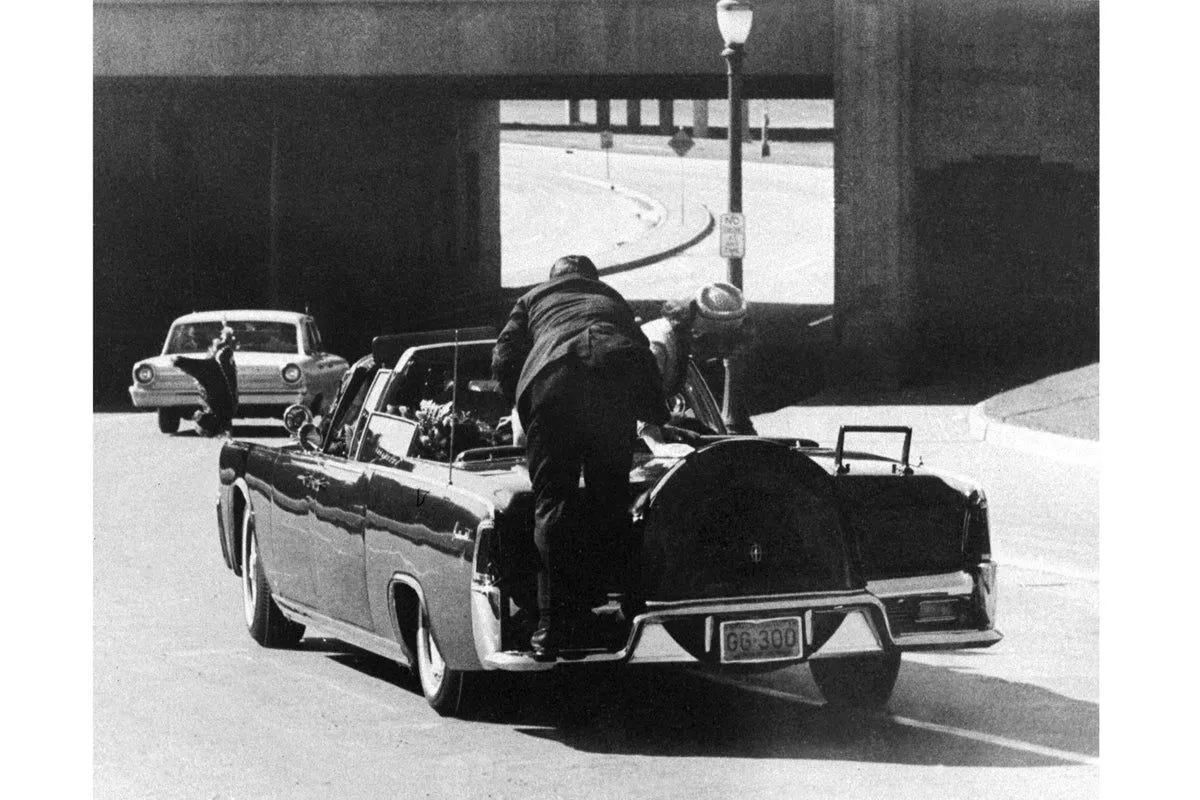Clint Hill: The Untold Story That Will Leave You Speechless!
In the annals of American history, few events resonate as profoundly as the assassination of President John F. Kennedy on November 22, 1963. Among those present during this tragic moment was Clint Hill, a former Secret Service agent whose actions that day would etch his name into the narrative of a nation. Hill’s story is one of courage, sacrifice, and the emotional toll of duty—a tale that continues to captivate and inspire.
Clint Hill was born on January 20, 1932, in Washburn, North Dakota. He joined the Secret Service in 1958, where he quickly established himself as a dedicated protector. His assignment to the Kennedy family began in 1960, where he developed a close relationship with Jacqueline Kennedy, the First Lady. Hill’s role was not just to protect the President but to also provide a sense of security to Mrs. Kennedy during her time in the White House.
On that fateful day in Dallas, Hill was stationed on the running board of the presidential limousine. As shots rang out, he witnessed the unthinkable. In a split second, he made the harrowing decision to jump onto the back of the limousine in a desperate attempt to shield President Kennedy from further harm. This act of bravery, captured in iconic photographs, would define his legacy and illustrate the profound commitment of those in protective roles.
The events of November 22, 1963, left an indelible mark on Hill. Following the assassination, he grappled with the trauma of that day. “I felt I had failed in my duty,” Hill reflected in a later interview, revealing the heavy burden he carried. The emotional toll of witnessing such a national tragedy took a significant toll on his mental health, leading him to seek solace in writing and reflection.
In the years following the assassination, Hill penned several books, including “Five Days in November,” where he recounts his experiences during the assassination and its aftermath. His writings provide a unique perspective, blending personal reflections with historical analysis. In one poignant passage, he writes, “The memory of that day will never leave me. It’s a part of who I am now.”
Hill’s insights have not only contributed to our understanding of that tragic day but have also sparked discussions about the emotional complexities faced by those in protective roles. Through numerous interviews and documentaries, he has shared his experiences, shedding light on the often-overlooked psychological impacts of such high-stress occupations. His story emphasizes the need for support and understanding for those who serve in similar capacities.
As discussions about the Kennedy assassination continue to evolve, Hill has become a symbol of dedication and resilience. He often speaks about the importance of service, reflecting on the profound responsibility that comes with protecting national leaders. “It’s not just a job; it’s a commitment to the country,” he asserts, highlighting the sacrifices made by those in the line of duty.
Clint Hill’s life story has gained renewed interest in recent years, particularly as new generations seek to understand the complexities of the Kennedy era. His experiences resonate not only with history enthusiasts but also with anyone who has faced adversity and sought to rise above it. Hill embodies the spirit of resilience, reminding us that even in the face of unimaginable challenges, there is strength to be found.
In conclusion, Clint Hill’s story is one that transcends time and continues to touch the hearts of many. His bravery on that tragic day in Dallas, coupled with his ongoing commitment to sharing his experiences, serves as a powerful reminder of the sacrifices made by those who protect our leaders. As we reflect on the events of November 22, 1963, we are left with a profound appreciation for the complexities of duty, the weight of trauma, and the enduring spirit of service. Hill’s journey is a testament to the human experience—one that is both heart-wrenching and inspiring, leaving us speechless in its wake.





Leave a Comment